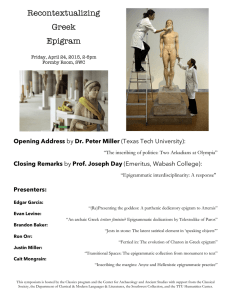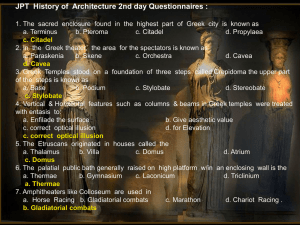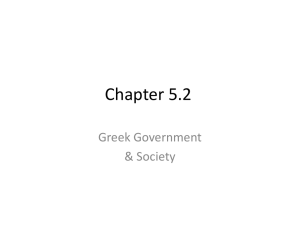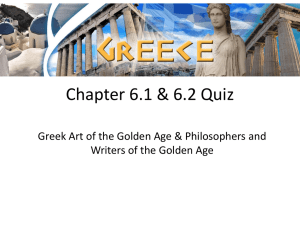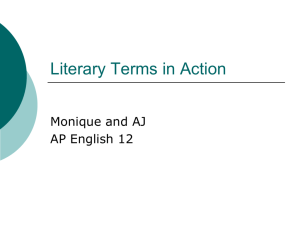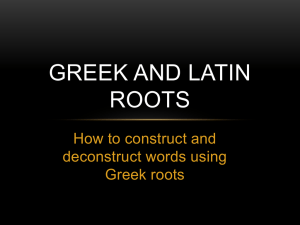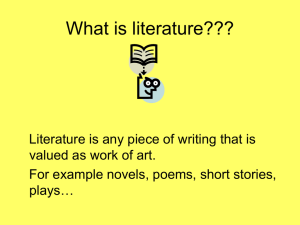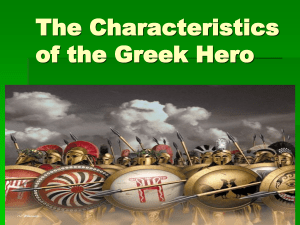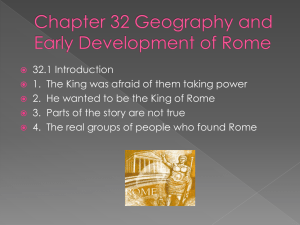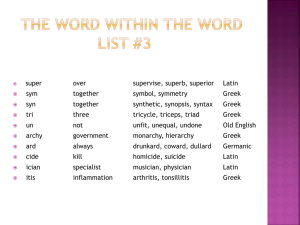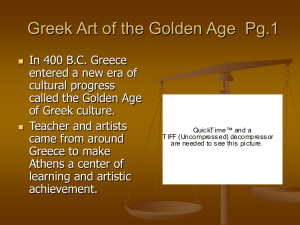Palladas
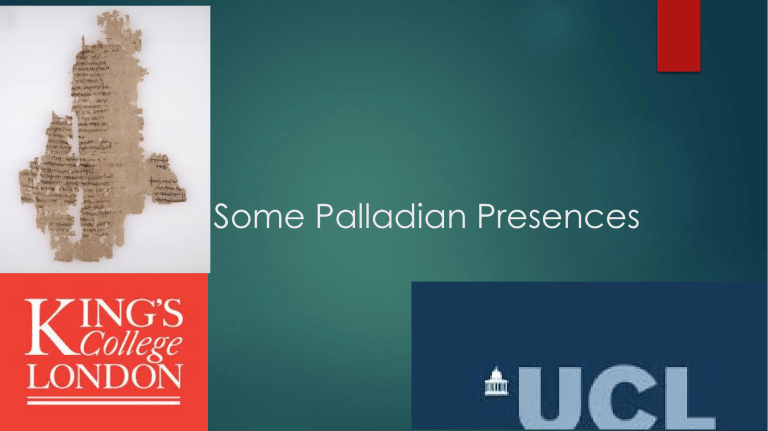
Some Palladian Presences
Anthologia Graeca Planudea = Anthologia diafo ron epigrammato n ed. Ianos Laskaris, Firenze: Laurentius de Alopa
(1494)
"
Among the greater Greek classics, only
Homer and Isocrates were in print before the
Anthology; and during the sixteenth century few of the classics were more often reedited" (James Hutton, The Greek Anthology
in Italy to the Year 1800 (Ithaca, New York,
1935), p. 38.
Just a few poets soon inspired by or using Palladas:
Lope di Vega
Ronsard
Olivier de Magny
John Donne, “For than kisses, letters mingle Soules
For thus friends absent speak” (Palladas 9.401)
Herrick
Ezra Pound. Not only translates some Palladas, but see ‘Horace’,
Arion 9 (1970) 178-87:
His jibes at old women are like petty personal fusses lacking the charm of Palladas'
impartial pessimism or the artistic aloofness, the Epicurean and really godlike impersonality of Catullus..
Palladas as ‘Poet’s poet’:
See e.g.
John Frederick Nims
(1913-1999)
Palladas’ “bios/skene” epigram is pivotal to his postwar Masque of
Blackness
The streets and rooms they moved in rang unreal
Since not yet real to the child; say someone's dream
Strange as drowned cities where the cursive eel
Flashes in alleys. A curtain-time scene:
Whether they shifted vases, turned a page
All seemed last-minute touches on a stage.
The stage and a man's life-long before Avon
Cynical Palladas saw we "play a part."
Though of that scenery or the gapes it gave on
Hard to say which is model and which art.
Down the steep aisles of a murky vast
Theater, all seats empty, he and she
Go groping backstage; from a passionate past
Glitter the lurid flats of cloud and sea.
Palladas and prose fiction
Jonathan Swift in Gulliver’s Travels—especially in some of the more arcane proper names
Prosper Mérimée’s novella Carmen (source of the opera), has the epigraph (in Greek):
Πᾶσα γυνὴ χόλος ἐστίν· ἔχει δ᾽ δύω ὥρας,
τὴν μίαν ἐν θαλάμῳ, τὴν μίαν ἐν θανάτῳ.
Thomas Love Peacock’s Lucianic, comic Gryll Grange (1861), uses the bios/skene epigram as its epigraph.
Palladas and the Philosophers
Neil Cooper, ‘Moral Nihilism’, Proceedings of the Aristotelian Society 74
(1973-4) 75-90:
‘ I want in this paper to consider the view which may be called 'Moral
Nihilism' or 'Moral Indifferentism', according to which nothing matters morally. Some such view may accompany cynicism or radical despair.
The late Greek poet Palladas expresses it…
[he goes on to quote several epigrams]
‘Rites-de-passage’, pedagogical Palladas
‘ Learned
FOOTNOTE
PALLADAS’ e.g.
The works of
Anacreon, Sappho,
Bion, Moschus and
Musæus. Translated from the original
Greek. By Francis
Fawkes, M.A.
London,
MDDCLXXXIX
[1789]
Anthologisable
Palladas who in every era has sounded
‘modern’ enough to be interleaved with
‘contemporary’ epigrams and other short poems
Those were the days—when Latin quantities were discussed without
English translation in
The Times
GRAECULUS. "To
The Editor Of The
Times." Times
[London, England]
17 Jan. 1894: 6. The
Times Digital
Archive. Web. 31
Aug. 2014.
D. CACLAMANOS.
"The New
Type."
Times
[Lond on, England] 10
Oct. 1932: 10. By the year after,
English translation of Palladas is provided
Cavafy’s Palladian aspects
His own relationship with Alexandria (cf. his fascination with Herodas’ mimes when they appeared)
His fascination with the pagan perspective on the early Christians
His urban settings (also preferred by Harrison, who sees this as distinguishing him from
Ted Hughes, the other late 20 th -century Yorkshire poet.
His mournful, cynical and non-optimistic tone
His lapidary textures
His immersion with and constant allusion to a dense literary heritage
